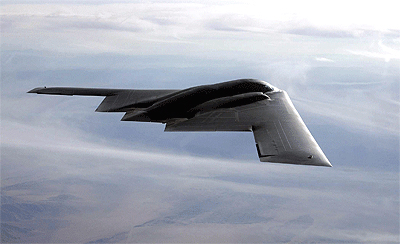US-RussiaFuture: “Nuclear Arms Control and U.S.-Russia Relations”

Subject: Nuclear Arms Control and U.S.-Russia Relations
Date: Thu, 31 May 2018
From: US-RussiaFuture <info@us-russiafuture.org>
U.S.-RUSSIA WORKING GROUP RELEASES STUDY ON NUCLEAR ARMS CONTROL
Bilateral report highlights opportunities for United States and Russia to reinvigorate nuclear arms control cooperation
CAMBRIDGE, Mass., May 31, 2018 – The Working Group on the Future of U.S.-Russia Relations, a bilateral collective of rising experts from American and Russian institutions, announces the publication of its ninth joint report: “Nuclear Arms Control and U.S.-Russia Relations.” Coauthored by Sarah Hummel (University of Illinois at Urbana-Champaign) and Andrey Baklitskiy (PIR Center, Moscow), the paper addresses nuclear arms issues that are vital to world peace and security at a time of tense U.S.-Russia relations.
The authors argue that recent adjustments to the nuclear doctrines of the Russian Federation and the United States demonstrate the urgent need for a renewed dialogue between the two countries on managing their vast nuclear weapons capabilities and potential. Is there room left for constructive initiatives that will reestablish cooperation in nuclear risk reduction between the United States and Russia? Can strategic stability be rebuilt on new terms? In this paper, the authors analyze five key challenges that make cooperation over nuclear arms control increasingly difficult and identify policy recommendations that, if implemented, could improve relations between the two countries.
The complete text of the report is accessible on the Working Group’s website: http://us-russiafuture.org
The Working Group was founded in the spring of 2010 with the aim of overcoming the lingering mistrust that dominates policy debate about the bilateral relationship in both countries. The group’s 20 members meet twice a year, alternating between the United States and Russia. Each meeting is devoted to analysis of a single subject, with the results integrated into a jointly authored paper. This truly bilateral approach allows the Working Group to generate path-breaking policy proposals that reflect the interests of both countries. Previous Working Group publications include “The Fragmentation of the Global Economy and U.S.-Russia Relations” by Rawi Abdelal and Igor Makarov (April 2017); “Toward U.S.-Russian Bilateral Cooperation in the Sphere of Cybersecurity” by Thomas Remington, Chris Spirito, Elena Chernenko, Oleg Demidov, and Vitaly Kabernik (May 2016); “The U.S. and Russian Interventions in Syria: Room for Cooperation or Prelude to Greater Conflict?” by Yoshiko Herrera, Andrew Kydd, and Fyodor Lukyanov (December 2015); and “The Sword and the Shield: Toward U.S.-Russian Strategic Compatibility” by Keith Darden and Timofei Bordachev (September 2014).
The Working Group is a project of the Davis Center for Russian and Eurasian Studies at Harvard University on the U.S. side, with generous support from Carnegie Corporation of New York. On the Russian side, the Working Group is sponsored by the National Research University-Higher School of Economics in Moscow, with support from the Valdai Discussion Club.
[featured images are file photos]

